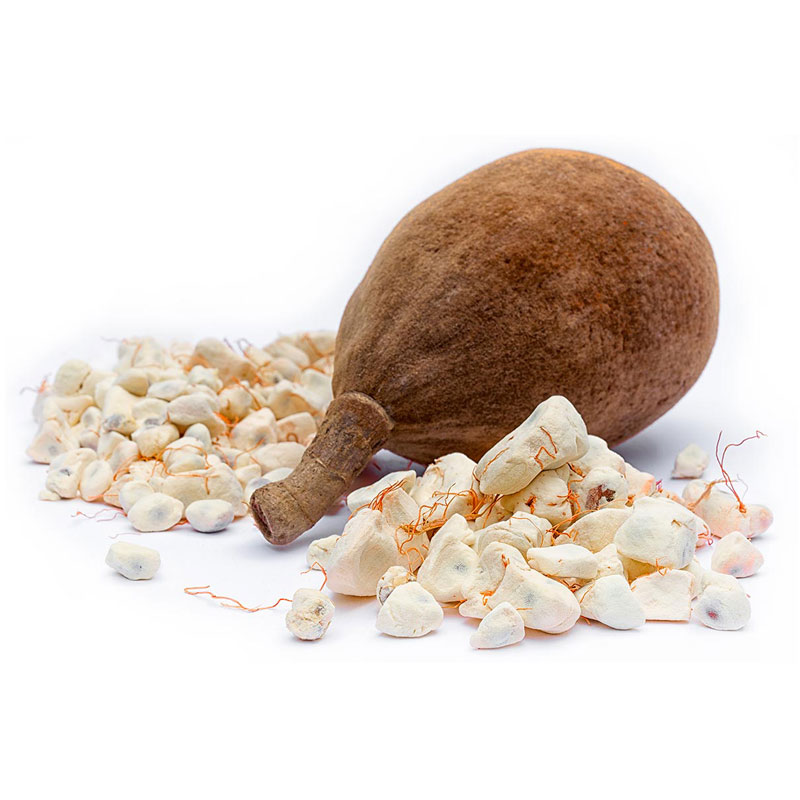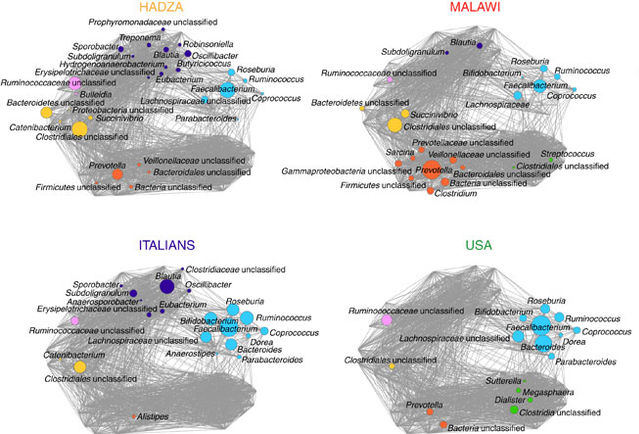
Most Americans don’t get enough fiber, which is essential for good prebiotic gut health. The average adult only eats 15 grams of fiber per day. Which is well below what we need. According to the Institute of Medicine, women need 25 grams of fiber per day, and men need 38 grams per day.
What Are Prebiotics and Prebiotic Gut Health?
Prebiotics are specialized plant fibers that beneficially nourish the probiotic “good” bacteria already in the large intestine or colon, such as Bifidobacteri, Lattobacilli and Clostridi. While probiotics introduce good bacteria into the gut, prebiotics act as a fertilizer for the good bacteria that’s already there. They help your good bacteria grow, improving the good-to-bad bacteria ratio.
This ratio has been shown to have a direct correlation to your health and overall wellbeing, from your stomach to your brain. Prebiotic fiber is found in many fruits and vegetables. Unfortunately the minute amounts of soluble fiber in most of these foods make ingesting enough fiber for good prebiotic gut health extremely difficult. Ingesting enough fiber in sufficient quantities is often difficult, however a daily additive of Baobab allows you to achieve optimum results.

DIETARY FIBER
Average fiber values per 100g against other dried fruits.
Prebiotic Dietary Fiber In Baobab And It’s Importance For Prebiotic Gut Health
Baobab Fruit Powder is a completely natural whole-food composed of 50% Dietary Fiber, 75% of which is soluble Prebiotic Dietary Fiber, which makes it a highly efficient and effective way to add prebiotic fiber to your diet, as well as commercial food & beverage formulations, in an effort to promote good prebiotic gut health. Baobab Fruit Powder’s effectiveness as a prebiotic has been proven both in research and in its traditional use in Africa.
Italian researchers have discovered that Baobab Fruit Powder has a positive prebiotic gut health effect on key groups of probiotic gut health flora. Compared to controls, they found Baobab Fruit Powder promoted significant increases in the production of two of the three key bacterial groups; Bifidobacteri and Lattobacilli. Just as important was the finding that it only took small amounts (an aqueous solution of just 2%) of Baobab Fruit Powder to affect the good bacteria. (S. Manfredini. “The Health Properties of Baobab (Adansonia Digitata)”, University of Ferrara. September, 2002)
Baobab In The Hunter-Gatherer Diet
The Hadza tribe of Tanzania, often referred to as the “last true hunter gatherers in the world,” eat Baobab Fruit Powder daily. Recent studies have shown that the Hadza have an exceptionally healthy and diverse gut microbiome – far superior, in fact, to the US and European populations studied. (S. Schnorr, et al. “Gut microbiome of the Hadza hunter-gatherers,” Nature Communications, 2014, Volume 5, Number 3654, 1-20)
These Wiggum charts indicate the variations and density of probiotic bacterial flora in the gut microbiomes of four groups: Hadza, Malawians, Italians and Americans. We can see from the charts that the Hadza have a visibly greater variety of probiotic bacterial flora in their guts. Researchers put this down to their diet, a key part of which is Baobab Fruit Powder.

Baobab is a Great Source of Insoluble Dietary Fiber
Dietary fiber is an extremely important component of our diets. It has been shown to aid in weight loss by reducing food intake at meals. It can also help to ward off many diseases. This is because foods that are rich in fiber take longer to digest and increase the feeling of fullness and satiety. In addition, the more gradual absorption slows the entrance of glucose into the blood, thereby preventing blood sugar and insulin spikes.
The average American consumes on average only 12-17 grams of fiber per day, which is significantly less that the recommended daily intake of 25 grams per day. In fact 80% of people in Western countries do not eat enough fiber – a habit that often starts in childhood and carries through to our adult life.
Soluble fiber is “soluble” in water. When mixed with water it forms a gel-like substance and swells. Soluble fiber has many benefits, including moderating blood glucose levels and lowering cholesterol.
Insoluble fiber does not absorb or dissolve in water, and therefore passes through our digestive system in close to its original form. It offers many benefits to intestinal health, including a reduction in the risk and occurrence of hemorrhoids and constipation.
Baobab Fruit Powder is almost 50% Dietary Fiber, comprised of both soluble and insoluble fiber. The National Academy of Sciences has recommends that both insoluble and soluble dietary fibers are consumed as part of a healthy, well balanced diet. This means that by consuming Baobab on a daily basis, you are covering all of your fiber needs in one healthy go!
Let’s Talk About Baobab And Prebiotic Gut Health
Baobab Fruit Powder from Organically Africa can be an important source of prebiotic dietary fiber in your next food product.
By increasing the levels of dietary fiber in your food products you will be helping to provide your consumers an additional source of fiber in their diet which can be a key to improving their gut health.
Reach out and let’s discuss how you can add Baobab Fruit Powder as a whole-food ingredient.
